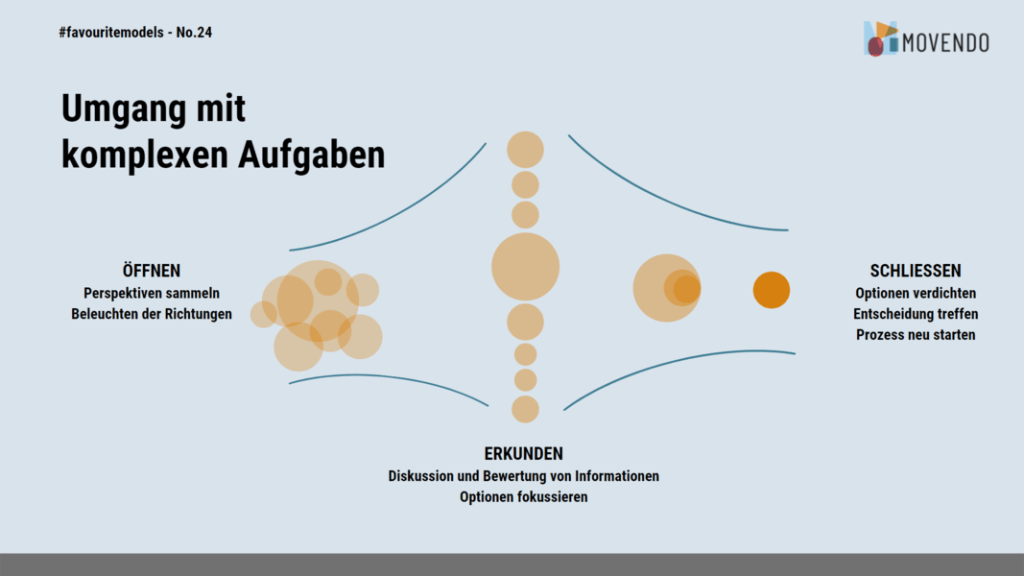Created by Karen Krogel
#favouritemodel No. 24 – Dealing with complex tasks

When was the last time you said to an employee who came to you with a problem: “Well, I understand your problem 100% and can tell you: if you do exactly XY, you’re guaranteed to solve the problem.”?
And that solved the problem? Well then, congratulations! Because this type of problem is dying out. There are fewer and fewer problems that we can solve with just the right specialist knowledge. At the same time, there are more and more tasks with a degree of complexity that we need several brains just to get through. If I try to solve such complex problems using the “expert approach” – i.e. assuming that I only need the right knowledge or the right person with the right knowledge – I will probably fail miserably. My solution will probably only target 1-2 aspects of the problem, whereas it actually has around 250. Which means that I have ignored the complexity with this approach. Perhaps I have also deliberately “reduced” it. We often talk about the need to reduce complexity. But how effective is that? If I reduce some aspects of an issue in order to understand it better, they have not disappeared in reality. So would I have to add them back later and would my solution still be sufficient? Probably not.
How does my #favoritemodel help you?
In our increasingly interconnected and interdependent world, we cannot escape the growing complexity. Ignoring it also helps emotionally at best – because it relieves us if we simply ignore aspects of it. But as one of my participants once remarked so aptly: “Complexity doesn’t care whether you acknowledge it or not – it’s just there! So let’s face it with all our diverse expertise, our different perspectives, experiences, feelings and thoughts and bring them to maximum fruition by:
- Ask open questions that create space for new perspectives
- Consciously invite counter-speech
- Invite more than one “expert
- Making information accessible and transparent for everyone
- never commit ourselves too quickly to one option
- prefer to plan smaller steps
- learn from the previous steps and rather add one more learning loop to the process
- always assume that we could also be wrong
What experience have you gained in solving complex problems? What other ideas do you have for dealing with them? Feel free to write to me if you would like to discuss this. By email or on LinkedIn.
Author

Karen Krogel
Consultant





